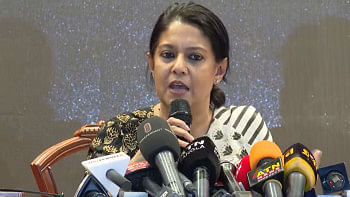The Trial of The Chicago 7: A trial of reflection

The '60s in America is something that pop culture harkens back. After all, why not? The era gave us The Beatles, revolutionary struggles, sexual liberation, radical social movements, assassinations, rock and roll, and most importantly, the civil rights struggle and the wider anti-Vietnam war movement sweeping across a country that till this day pursues active and aggressive militarisation at home and abroad.
Aaron Sorkin's new film, "The Trial of the Chicago 7" delves right into the nation divided, trying to make sense of its place in a world on fire; fire is lit and has engulfed it ever since. The trial, which took place in 1968, is famous for trying 8 suspects whom the government saw as legitimate threats to the nation's stability. After the horrific settings of having the only Black defendant, Bobby Seale (Yahya Abdul-Mateen II), the leader of the charismatic Black Panther, gagged and beaten, the trial resorted to the seven remaining members.
Offering a stellar cast portraying America's motley mix of stoned rebels, radicals, pacifists, and social activists, the film showcases a scope of talent that truly reflect the happenings of an (in)famous trial. The film brings to you the performances of Eddie Redmayne as Thomas Hayden, Sacha Baron Cohen in perhaps his most striking serious role yet as Abbie Hoffman, Mark Rylance as the go-getting swashbuckling lawyer, Bill Kunstler, and Frank Lagella as the corrupt judge, Julius Hoffman alongside Joseph Gordon-Levitt as the ambivalent prosecutor, Richard Schultz.
When the government charged a band of misfits and degenerates with inciting riots at the 1968 Democratic National Convention, the outcome was pandemonium infused in performance art with the government acting as judge and jury. In a nation charged with a growing resentment of war pushed onto a nation with racial tensions high, the trial provides as a backdrop – and a mirror to our troubled times.
Viewers are thrust into the chaos of 1968 as soon as the film begins introducing them to key players who stand as accused in the trial of the Chicago 7. It shows the unique strategies taken by each of the key players in staging their own mode of protest against a government, which dares to speak in their time as it bombs civilians abroad and erodes civil rights at home.,
Pandemonium ensues as all of them plan their trip to Chicago to protest the Vietnam War during the Democratic National Convention. You have the peaceful protests spearheaded by Tom Hayden and Rennie Davis (Alex Sharp), a militant approach taken to solve the race problem by the Black Panthers, the fun outing cum chaotic approach taken by Abbie Hoffman and Jerry Rubin (Jeremy Strong) alongside the pacifism of David Dellinger and Lee Weiner and John Froines, fellow co-organizers of the protest. For a film which has a rather gentle but highly climatic flow from start to finish, it sheds light on the fractured relationships that exist gently between the valley of reason and respect yet does not encompass all the lives of the seven. Weiner (Noah Robbins), Dellinger (John Carroll), and Froines (Daniel Flaherty) are given minor roles with a bulk of the film treating Abbie Hoffman-Jerry Rubin and Thomas Hayden as the poster boys of the wider group.
The film rages onto Nixon's government's criminalization and censorship of dissenting voices. This, as our history presents, was not Nixon's only act of criminal indulgence. His actions during the war of 1971 are well known. The trial boils down to searching for the nation's soul, not its plastic heart as the chorus of "The world is watching !" chants take place outside as trials take place. Pushed against a wall of deceit and deception, the film takes a sweep of the clash of egos, ideas, and the quest for reform in the hearts of the seven men. There are high-pitched verbal battles in and out of the courtroom paving way for the battle to commence with grace in every scene. The film ends on coldest comforts as a nation comes to terms with the destructiveness of war and obedience – two things that go in sync in the view of the defendants.
Employing the theatrics of protest, performance art, FBI surveillance and vigilance, trappings of race, phone tappings, the film is a thrilling tour de force-fitting the 60s and their subsequent impact on the world around us. A courtroom drama that we have not seen for a long time charged with a blaze of energy and euphoria signalling the better and worst angels of our nature. A mirror to our times, indeed.


 For all latest news, follow The Daily Star's Google News channel.
For all latest news, follow The Daily Star's Google News channel. 



Comments